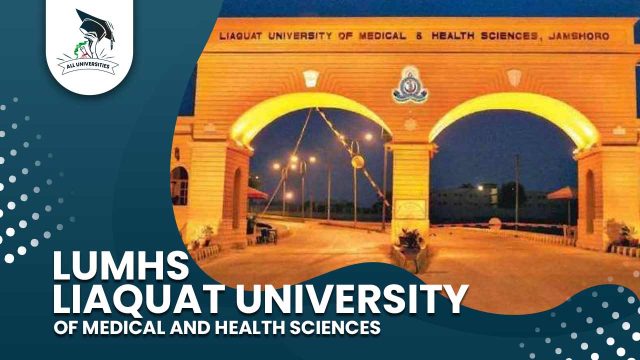Government Medical Universities in Jamshoro
Jamshoro, a city in the Sindh province of Pakistan, is home to two prestigious government medical universities: Liaquat University of Medical and Health Sciences (LUMHS) and Bilawal Medical College (BMC) LUMHS. These universities offer students a world-class medical education at an affordable price, preparing them for successful careers in the global medical community.
Affordability and Accessibility
One of the key benefits of studying at a government medical university in Jamshoro is that it is affordable and accessible to students from all walks of life. The tuition fees are significantly lower than at private medical schools, and both LUMHS and BMC are located in the heart of Jamshoro, making them easy to commute to.
Diversity and Quality Education
Government medical universities in Jamshoro attract students from all over Pakistan and from around the world, creating a diverse and vibrant learning environment. Students have the opportunity to learn from and interact with people from different backgrounds and cultures, which prepares them for the globalized medical field.
State-of-the-art Facilities and Experienced Faculty
Government medical universities in Jamshoro are equipped with state-of-the-art facilities and experienced faculty. Students have access to modern laboratories, libraries, and teaching hospitals, where they can gain hands-on experience and develop the skills they need to succeed in their careers.
Excellent Job Prospects
Graduates of government medical universities in Jamshoro are highly sought-after by employers in Pakistan and around the world. They are working in government hospitals, private hospitals, and academia, making a positive impact on the health of people everywhere.
Here are some specific examples of the impact that government medical universities in Jamshoro are having on the region and the country:
- Graduates of these universities are working in rural areas of Sindh, providing much-needed healthcare services to underserved communities.
- They are also conducting research on diseases that are prevalent in the region, such as malaria and dengue fever.
- In addition, they are working to raise awareness about public health issues such as malnutrition and hygiene.


